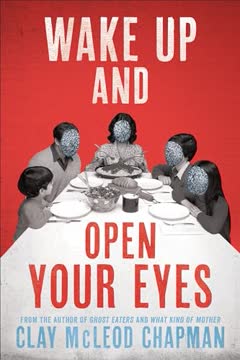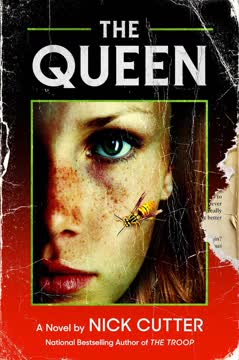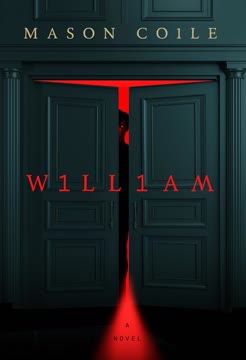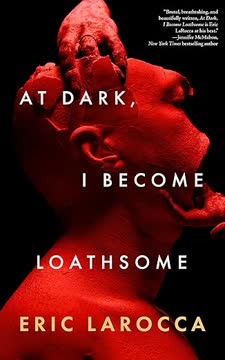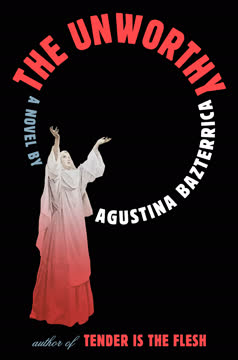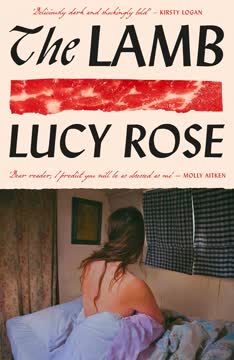Plot Summary
Fractured Voices, Fractured Homes
Noah Fairchild, a liberal New Yorker, is besieged by increasingly frantic, conspiratorial voicemails from his mother in Virginia. Her words are not her own—she's parroting right-wing news, her voice warped by fear and anger. Thanksgiving erupts in racial tension, exposing the rift between Noah's multicultural family and his parents' insular worldview. When his parents stop answering calls, Noah's dread grows. He drives south, leaving behind his wife Alicia and daughter Kelsey, desperate to confront the darkness overtaking his family. The journey is haunted by memories of warmth and love, now curdled by suspicion and ideological possession. Noah's hope for reconciliation is shadowed by the sense that something monstrous has already taken root in his childhood home.
The Great Reawakening Looms
Noah's mother's messages become apocalyptic, warning of a coming "Great Reawakening." Calls go unanswered; his brother Asher is distant and dismissive. Noah's anxiety mounts as he imagines every disaster—illness, violence, or worse. The family's political differences, once unspoken, have become chasms. Noah's father, retired and isolated, is glued to the TV, absorbing a steady stream of right-wing paranoia. His mother, once gentle and open, now repeats slogans and conspiracy theories. The family's reality is being rewritten by the media they consume, their personalities overwritten by a viral narrative. Noah's drive south is a descent into a country on the brink, where the line between reality and delusion is dissolving.
Descent Into the Void
Arriving at his parents' house, Noah finds chaos: barricaded doors, darkness, the stench of decay, and every TV blaring the same news anchor, Paul Tammany. The house is a shrine to media-induced madness. His father is a shell, fixated on the blank screen, barely responsive. His mother is lost in ritualistic repetition, her identity erased by the broadcast. When Noah turns off the TV, his mother briefly returns to herself, only to relapse into obsession. The family's history—love, discipline, tradition—has been consumed by a new faith, one that demands total submission. Noah is powerless, trapped in a nightmare where the people he loves are possessed by something both familiar and utterly alien.
Family Night Unravels
The Fairchilds' attempts at normalcy—family dinners, shared routines—are twisted by the encroaching possession. Devon, Asher's wife, seeks solace in online wellness gurus, falling prey to digital snake oil and conspiracy. Asher, once moderate, is seduced by the angry certainty of Fax News. Their son Caleb, isolated and desperate for meaning, is targeted by online bots and radicalized through viral challenges. Young Marcus clings to childish rituals, but even his innocence is not immune. The family's screens become portals for infection, their bodies and minds reshaped by the content they consume. The home is no longer a sanctuary but a battleground for their souls.
Digital Demons, Viral Plagues
The possession is not just ideological—it is viral, memetic, and supernatural. Bots and influencers lure the vulnerable with promises of belonging and transformation. Devon's quest for health becomes a descent into self-destruction, guided by the siren call of YOGAMAMA. Caleb's loneliness is exploited by faceless online entities, who convince him he is chosen for a higher purpose. The "Wake-Up Call" challenge spreads like wildfire, infecting children and adults alike. The boundaries between digital and physical, self and other, are obliterated. The plague is everywhere: in emails, videos, memes, and the very airwaves. The world is being remade in the image of its own fears.
The Possession Spreads
On December 20th, the "Great Reawakening" arrives. Across America, people succumb en masse to possession, triggered by synchronized broadcasts and viral rituals. Violence, orgies, and self-mutilation break out in homes, schools, and public spaces. News anchors, wellness influencers, and children alike become vectors for the contagion. The possessed chant in unison, their bodies puppeted by a force that is both technological and demonic. The apocalypse is livestreamed, documented in thousands of videos—each a window into the collapse of order and the triumph of chaos. The old world is swept away in a tide of madness, leaving only survivors and monsters.
Orgies of Violence and Faith
The streets are filled with carnage: neighbors devour each other, families turn feral, and mass orgies erupt in public spaces. Attempts at exorcism—religious, scientific, or folk—fail or devolve into further violence. Survivors form militias, hunting the possessed with guns and fire. The media, once the source of infection, now documents the aftermath, offering no answers. The boundaries between faith, delusion, and reality blur. The possessed are not mindless zombies but conduits for a collective, destructive will. The apocalypse is not a single event but a process—a slow, grinding erasure of everything that once held society together.
The Road to Ruin
Noah, traumatized and bloodied, escapes his family's ruin with his nephew Marcus, who is slipping into possession. The highways are clogged with abandoned cars and corpses. Survivors are suspicious, divided by politics and fear. Noah's liberal values offer little comfort; survival demands ruthlessness. He joins a group of fellow travelers, but alliances are fragile. The journey north is a gauntlet of violence, hunger, and despair. Marcus, once innocent, is now a vessel for the viral song "Baby Ghost," his mind colonized by the contagion. Noah's hope for redemption is battered by the relentless evidence of humanity's collapse.
Survival Games and Alliances
Noah and Marcus fall in with a band of survivors led by Martha, a pragmatic former store manager. The group navigates the ruins of Washington, D.C., witnessing the grotesque orgy on the National Mall—a symbol of civilization's total breakdown. Trust is scarce; every encounter is a test of allegiance. The survivors barter information, share conspiracy theories, and debate the nature of the plague. Is it viral, demonic, or mass hysteria? The truth is elusive, lost in a sea of conflicting narratives. Noah's faith in reason and community is tested to the breaking point.
The Orgy on the Mall
The National Mall is transformed into a writhing mass of possessed bodies, an orgy of violence and sex that engulfs the monuments of American history. The survivors are hunted by the horde, their numbers thinned by betrayal and bad luck. Noah and Marcus barely escape, hiding in abandoned vehicles and scavenging for food. The city is a graveyard, its landmarks desecrated. The apocalypse is not just the end of order but the inversion of meaning—every symbol of hope and unity is defiled. Noah's journey becomes a pilgrimage through the ruins of a world that can never be restored.
The Child and the Song
Marcus, exposed to the viral song "Baby Ghost" through endless screen time, is fully possessed. The song is an earworm, a memetic virus that hijacks the minds of children and adults alike. Noah, desperate to save his nephew, attempts a folk exorcism, recalling biblical stories of demons cast into swine. On a New Jersey farm, surrounded by starving pigs, Noah tries to lure the demon out of Marcus. The ritual fails; the possession is too deep, too viral, too modern for ancient remedies. Noah is forced to confront his own complicity, his own emptiness, and the futility of resistance.
Exorcism by Swine
Noah's attempt to exorcise Marcus by offering the demon a new vessel—a pig—descends into farce and horror. The pigs, more human than the humans, join in the viral song, their squeals echoing the possessed chorus. Noah's rage and despair boil over; he nearly kills Marcus in a fit of helplessness. The realization dawns: there are no demons, only the darkness within. The apocalypse is not supernatural but all too human—a collective surrender to fear, hate, and the seductive power of belonging. Noah's liberal ideals are revealed as hollow, his sense of superiority a mask for his own emptiness.
The Final Surrender
Broken in body and spirit, Noah succumbs to the possession. The viral song fills his mind, erasing his identity. He becomes one with the chorus, his voice joining the millions who have surrendered to the contagion. The apocalypse is complete: the world is remade in the image of its own nightmares. The survivors are few, their resistance futile. The possessed are not mindless—they are united, purposeful, and ecstatic in their destruction. The old world is gone, replaced by a new order of chaos and communion.
Homecoming, Hollow and Haunted
After days of wandering, Noah and Marcus arrive at Noah's Brooklyn home. Alicia and Kelsey answer the door, overjoyed to see him. But Noah is no longer himself—he is a vessel for the plague, his smile a rictus of possession. The reunion is a mockery of hope; the family embrace is the prelude to another infection. The apocalypse is intimate, domestic, and inescapable. The home, once a sanctuary, is now the site of final surrender. The cycle of possession continues, spreading from one loved one to the next.
The World Unmade
The world is unrecognizable: cities burn, families are torn apart, and the possessed roam in packs, seeking new victims. Attempts at exorcism, quarantine, and resistance fail. The media, once the source of infection, now documents the aftermath in endless, looping footage. The survivors are haunted by guilt, regret, and the knowledge that the apocalypse was not imposed from without but welcomed from within. The final lesson is bleak: the desire for certainty, belonging, and meaning can be weaponized, turning love into hate and community into contagion. The world is unmade, not by demons, but by the people themselves.
Characters
Noah Fairchild
Noah is the novel's emotional core—a liberal, educated New Yorker who feels increasingly alienated from his conservative, media-addled family in Virginia. His journey is both literal and psychological: he travels south to rescue his parents, only to confront the limits of empathy, reason, and familial love. Noah's relationships are fraught: his marriage to Alicia is strained by cultural and racial tensions, and his connection to his daughter Kelsey is tinged with guilt and longing. As the apocalypse unfolds, Noah's self-image as a rational, compassionate man is shattered. He is forced to confront his own helplessness, rage, and complicity. His arc is a descent from hope to horror, ending in possession and the loss of self.
Devon Fairchild
Devon, Asher's wife, is a suburban mother whose quest for health and meaning leads her into the clutches of online wellness gurus and conspiracy theories. Her vulnerability is exploited by digital "sirens" who promise transformation but deliver possession. Devon's relationship with her family deteriorates as she becomes obsessed with juice cleanses, social media challenges, and the cult of YOGAMAMA. Her arc is a cautionary tale about the dangers of digital isolation, the hunger for belonging, and the ease with which self-care can become self-destruction. Devon's possession is both physical and spiritual, culminating in a grotesque, livestreamed self-sacrifice.
Asher Fairchild
Asher, Noah's older brother, is the favored son—practical, traditional, and emotionally distant. Initially skeptical of the media's influence, he is gradually seduced by the angry certainty of Fax News and its charismatic anchor, Paul Tammany. Asher's transformation is both ideological and supernatural; he becomes a vessel for the plague, his masculinity weaponized by the narrative of grievance and victimhood. His relationship with Devon and his children is strained by his growing paranoia and rage. Asher's arc is a study in radicalization, showing how ordinary people can be turned into zealots by the relentless drumbeat of fear and resentment.
Caleb Fairchild
Caleb, Asher and Devon's teenage son, is a lonely, acne-ridden boy desperate for connection and significance. Targeted by online bots and radicalized through viral challenges, Caleb becomes convinced he is chosen for a higher purpose. His arc mirrors the real-world dangers of online grooming, incel culture, and memetic contagion. Caleb's ultimate act—a livestreamed suicide bombing at his school—serves as both a literal and symbolic "Wake-Up Call," spreading the plague to new hosts. His story is a tragedy of lost potential, showing how digital isolation can be weaponized by malign forces.
Marcus Fairchild
Marcus, the youngest Fairchild, is initially a symbol of innocence and hope. He clings to childish rituals—songs, games, and the comfort of screens—but is ultimately not immune to the viral possession. The song "Baby Ghost" becomes his mantra, a memetic virus that colonizes his mind. Marcus's arc is heartbreaking: he is both victim and vector, his innocence exploited by forces beyond his understanding. His relationship with Noah becomes central in the novel's final act, as Noah desperately tries—and fails—to save him from possession.
Alicia
Alicia, Noah's wife, is a stabilizing force—practical, compassionate, and resilient. As a Black woman in a mixed-race family, she is acutely aware of the dangers of both overt and subtle racism. Her relationship with Noah is strained by his family's descent into madness and the broader collapse of society. Alicia's arc is one of survival and endurance; she represents the possibility of hope and healing, even as the world unravels. Her final reunion with Noah is ambiguous—tinged with both relief and dread.
Kelsey
Kelsey, Noah and Alicia's daughter, is a city kid—confident, multicultural, and musically gifted. She is largely shielded from the worst of the apocalypse, but her safety is always in question. Kelsey represents the possibility of a better future, one not defined by the sins of the past. Her relationship with Noah is a source of both motivation and guilt, driving his desperate journey home. In the novel's final moments, Kelsey's embrace becomes a symbol of both hope and the inescapable spread of the plague.
Paul Tammany
Paul Tammany is the face of Fax News—a blend of Jay Leno, George Clooney, and a used-car salesman. His broadcasts are hypnotic, blending anger, certainty, and seductive charisma. Tammany is both a real person and a supernatural force, his image and voice infecting viewers with the viral possession. He is the high priest of the new faith, demanding total submission and orchestrating the "Great Reawakening." Tammany's arc is that of the Antichrist—destroyer, seducer, and false prophet.
YOGAMAMA (Larissa)
YOGAMAMA, aka Larissa, is a wellness influencer who lures vulnerable women into her cult of self-improvement and conspiracy. Her Instagram feed is a blend of beauty, affirmation, and subtle indoctrination. She is both a real person and a digital demon, her image shimmering with supernatural power. YOGAMAMA's arc is a critique of the wellness industry, showing how the search for meaning and health can be twisted into fanaticism and self-destruction.
The Possessed
The possessed are not mindless zombies but a collective entity—individuals whose identities have been overwritten by a viral, demonic force. They are united by ritual, song, and violence, their actions both ecstatic and horrifying. The possessed are both victims and perpetrators, their humanity erased by the need to belong, to be certain, to be saved. They are the novel's true antagonist—a mirror held up to society's darkest impulses.
Plot Devices
Viral Possession and Memetic Contagion
The novel's central device is the fusion of supernatural possession with viral, memetic contagion. The plague spreads not through physical contact but through screens—TVs, tablets, phones, and social media. Slogans, songs, and rituals become vectors for infection, erasing individuality and replacing it with a collective will. The narrative structure mirrors this device: chapters are intercut with found footage, livestreams, and social media posts, creating a collage of perspectives and voices. Foreshadowing is achieved through repeated motifs—songs, slogans, and the omnipresent threat of the "Great Reawakening." The apocalypse is not a single event but a process, unfolding in waves of hysteria, violence, and surrender. The novel's horror lies in its plausibility: the tools of possession are the very technologies and narratives we use every day.
Analysis
"Wake Up and Open Your Eyes" is a searing allegory for the age of disinformation, polarization, and digital addiction. Clay McLeod Chapman weaponizes the tropes of horror—possession, contagion, apocalypse—to interrogate the ways media, technology, and ideology can colonize the mind and destroy the bonds of family and community. The novel's structure—fragmented, polyphonic, and immersive—mirrors the chaos of the modern information landscape, where truth is elusive and every narrative is suspect. The characters' arcs are studies in vulnerability: the desire for certainty, belonging, and meaning is exploited by malign forces, both human and supernatural. The apocalypse is not imposed from without but welcomed from within, as individuals surrender their agency to the seductive power of collective identity. The novel's bleak conclusion offers no easy redemption: the world is unmade not by demons, but by the people themselves, their fears and hatreds weaponized by the very tools meant to connect and enlighten. The lesson is clear and chilling: in the absence of critical thought, empathy, and genuine connection, we are all vulnerable to possession—by ideas, by narratives, by the viral contagion of our own worst impulses.
Last updated:
Review Summary
Wake Up and Open Your Eyes receives polarized reviews. Many praise its political satire and horror elements, calling it a timely critique of media consumption and extremism. Others find it heavy-handed, gratuitous, and offensive. Readers appreciate the unique take on possession and zombie tropes, while some criticize the repetitive writing and explicit content. The book's political messaging is divisive, with some viewing it as necessary commentary and others as preachy. Overall, it's a controversial work that elicits strong reactions, both positive and negative, from readers.
